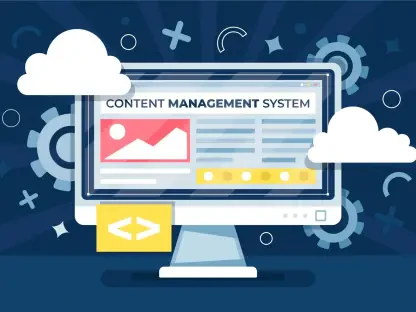With the swift advancement of technology, the role of artificial intelligence in digital marketing for small and medium-sized enterprises (SMEs) is garnering increasing attention. AI content creation tools have started to reshape this landscape by empowering SMEs with innovative marketing strategies that were once the domain of large corporations. By incorporating AI technologies, SMEs can perform complex tasks like content generation, ad targeting, and customer engagement with unprecedented efficiency. This FAQ article will explore the questions surrounding this evolution, aiming to decode the transformation occurring in the digital marketing arena.
What Makes AI Content Creation Transformative for SMEs?
AI content creation tools are revolutionary primarily due to their ability to democratize access to sophisticated marketing techniques. Historically, such capabilities were limited to companies with abundant resources. Now, these tools enable SMEs to automate content production, which can substantially reduce costs and increase efficiency. The hybrid model of collaborating AI with human creativity is particularly noteworthy. By enabling SMEs to generate large volumes of quality content quickly and affordably, AI solutions like AIContentPad are leveling the playing field, allowing smaller players to contest with industry giants effectively.
Beyond cost savings and operational efficiency, AI-driven content tools offer enhanced engagement strategies. They not only increase the speed at which content is produced but also improve its relevance and impact on target audiences. By utilizing AI’s data analysis capabilities, SMEs can craft campaigns that resonate deeply with consumers, leading to higher engagement rates and, ultimately, business growth.
How Do SMEs Effectively Scale AI-Driven Content Solutions?
Scaling AI content solutions can vary greatly across SMEs due to several factors like skill levels and security concerns. While a quarter of SMEs already employ AI technology, the path to widespread scalability remains uneven. Firms that have managed to integrate AI successfully often adopt a hybrid model, which synergizes AI-driven insights with human creativity. This approach ensures not only better management of content creation but also secures a unique brand voice that AI tools alone might dilute.
Key enablers like Semrush and IRDG’s insights reveal that adopting a hybrid model helps in overcoming these scalability hurdles. Such a model facilitates a seamless blend of automated efficiency and the human touch, crucial for maintaining brand authenticity and achieving effective marketing outcomes. Those who implement these strategies find themselves yielding improvements in performance metrics such as return on investment and customer engagement.
What Are the Financial Implications and ROI of Using AI Tools?
The discussion on return on investment (ROI) for AI-driven tools is complex, with varying results. Studies have shown that expansive AI applications across enterprises may provide limited ROI; however, targeted use within specific areas can lead to substantial financial benefits. For example, utilizing AI for content generation in a strategic, focused manner has yielded remarkable results for companies by reducing costs and enhancing engagement statistics significantly.
Similarly, industries such as travel have benefited from AI, showing cost reductions of up to 40% with notable rises in customer interaction. A critical takeaway for SMEs is the importance of targeted AI application. By implementing AI tools purposefully, businesses can expect both tangible cost savings—categorized as hard ROI—and intangible benefits like customer satisfaction and improved employee morale—categorized as soft ROI.
Are There Risks and How Can They Be Mitigated?
Despite its advantages, over-reliance on AI poses several risks, such as inaccuracies and loss of brand voice. To mitigate these issues, a balanced approach is vital. Tools like Semrush’s E-E-A-T optimization offer potential solutions by adhering to established quality standards without compromising SEO rankings. Ethical frameworks should be adopted to guide responsible AI use, ensuring that content remains consistent with organizational values.
Mitigating risks also involves strategic investment in AI tools. Future investment possibilities might include companies that demonstrate robust data assets and scalable technology. Prioritizing firms with SME-centric business models or niche focus areas can lead to better strategic alignment and financial accuracy.
How Should SMEs Strategically Invest in AI for Maximum Benefit?
Investment in AI content creation offers compelling opportunities, but strategic evaluation is crucial. It’s essential for SMEs to recognize firms that boast proprietary data leadership and cutting-edge technology. Companies like Semrush, which merge AI with search metrics, exemplify how technology can significantly mitigate marketing challenges.
However, potential investors must exercise caution. Ill-conceived ventures into overhyped startups lacking in substantial ROI or proprietary data may not yield expected returns. SMEs, therefore, should focus on firms with proven track records and viable value propositions to ensure that their investment generates meaningful returns.
Final Thoughts
In summary, AI content creation has markedly reshaped the digital marketing landscape for SMEs, offering transformative potential across several dimensions. By employing hybrid models and strategic implementations, businesses have been able to maximize both operational efficiency and customer engagement. Effective risk management and targeted investments are critical in navigating this evolving arena. An awareness of both the benefits and challenges of AI can empower SMEs to make informed, strategic decisions, leading to sustainable growth and competitive advantage in the digital marketing domain.









